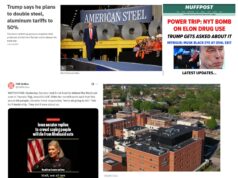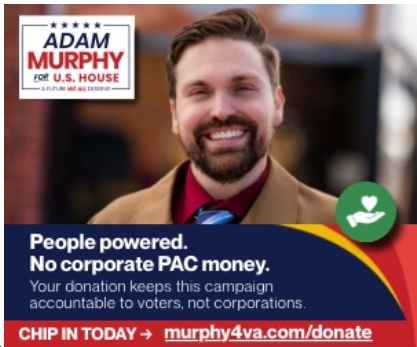The following excellent, detailed Facebook post by Charlottesville City Council Member Lloyd Snook really helps us understand the economic challenges localities, like Charlottesville, are facing due to COVID-19. Check it out.
*********************************
This is a long post, so let me give an Executive Summary at the top:
1. We’ll probably have tax revenue declines of $12 million or more in FY 2021. We have planned for $12 million; if it is more than that, we’ll have to cut more.
2. We expect our bondable capital projects — the Belmont Bridge replacement, public housing renovations, the new Court building and parking garage, etc. — will move forward, assuming that the municipal bond market is functioning.
3. Non-bondable capital projects that had been included in the March 2 budget — including over $2 million for affordable housing — are being deferred.
4. City Council has a public hearing at 6:30 PM on May 18, which you can watch on Channel 10 or Facebook, or you can participate via Zoom. If you want to participate by Zoom, go to https://www.charlottesville.gov/zoom
5. The agenda and all of the accompanying materials are downloadable at https://charlottesvilleva.civicclerk.com/Web/Player.aspx…
Now for the longer part…
Estimates are all over the map about how much the COVID19 shutdown will cost local governments. I attended (virtually) a presentation given to Virginia First Cities (I am one of Charlottesville’s representatives to VFC). The speaker prepared this summary of guess-timated losses from the shutdowns. He projected that Charlottesville would lose $6.1 million in tax revenues in the remainder of FY 2020, and $13.3 million in FY 2021.
The losses of tax revenue come from four sources in particular — lodging, meal and sales taxes, and business and professional licenses, which are based on revenues for the businesses. Charlottesville receives about $1.7 million a month, or $19.6 million a year, in lodging and meals taxes.
FY 2020 is not the big challenge — Charlottesville was looking to run a surplus in FY 2020 anyway, and we have reserves against financial downturns. Our estimates are for a tax revenue decline of about $5 million in FY 2020, and because of good financial practice and prudence, we can cover that shortfall in FY 2020.
The challenge, of course, is FY 2021.
The finance people have a detailed set of calculations, but I will summarize the issue this way — for Charlottesville’s economy to “re-open,” the University of Virginia has to re-open physically. If that were to happen, my guess is that lodging and meals taxes would be down only about 25%, or about $5 million for FY 2021. If the University does NOT reopen physically in the fall, my guess is that our lodging and meals taxes would be down at least 60%, or about $12 million. At this point — no inside information here — I would not expect to see the University physically re-open in August.
The finance staff’s analysis is similar, and the budget that we are working on assumes tax revenue losses of about $5.4 million, in what would have to be an unlikely optimistic projection. The first draft of this revised budget left about $7.9 million unallocated, in case we need to cut expenses by that amount to cover additional tax revenue declines. That amount is almost entirely made up of $7.3 million that we had been planning to transfer to the Capital Improvement Program. Our CIP program has 2 components — projects that can be funded by selling bonds, and projects that Virginia law does not allow us to issue bonds to finance. If we can’t issue bonds, we have to transfer general tax revenue to the CIP to pay for those non-bondable projects. The March 2 budget called for issuing about $27 million in bonds. The May budget calls for issuing bonds of about $23 million, mainly for the new General District Court building that we are building with Albemarle County, for the parking garage that is part of that agreement, for transportation projects like the Belmont Bridge replacement, and for the renovation of public housing sites. The March 2 budget would have used that general fund money for non-bondable expenditures like $2.6 million to affordable housing programs called for a $7 million contribution to the the CIP , and funding virtually none of the non-bondable projects.
At the work session last week, we tentatively decided to allocate another $1.3 million to the schools. That leaves about $6.6 million unallocated, and Commissioner of Revenue Todd Divers cautioned that we should not spend any more of that amount, at least until we have some assurance that the situation isn’t going to get worse.
The bottom line is that this budget will work as long as our tax revenue does not decline by more than $12 million. I always try to plan for the worst; I like pleasant surprises, not unpleasant surprises. My suspicion is that $12 million will turn out to be low, but, as I said earlier, I have no inside scoop. I hope that my gut feeling is wrong.
The expenditure side of the budget basically goes back to FY 2020 levels, with a few exceptions. The most notable exceptions are:
** Additional money for the Registrar to deal with expected heavy turnout — much of it by absentee ballot — in the November Presidential election. We will also have primaries in June, 2021. They’ll need some additional help, and they get an extra $65,000 or so.
** The Police Citizen Review Board funding of $150,000 is still in the budget.
** Mayor Walker’s initiative, the Home to Hope program that is designed to help those coming out of jail make a productive transition to society, is still funded at $350,000.
** In FY 2020 we have given the school system $57.8 million, which was $57,366,000 for the regular appropriation, plus an extra $468,000 to fund additional teachers for the gifted program. The March 2 budget recommended $59.5 million. At the May 6 work session, we tentatively agreed to give the schools about another $,343,000, for a total of $58.7 million.
** In February we had had a detailed examination of how we would allocate $2.1 million under the “Vibrant Community Funds” program. The VCF is money that we give to various non-profits like Offender Aid and Restoration, Legal Aid and Justice Center, the Boys and Girls Club, ReadyKids, etc. For many of these organizations, their work is an important part of the social safety net in Charlottesville. The May budget zeroes them all out. That does not mean that we won’t give money to non-profits — only that the COVID19 crisis is causing enormous dislocations in the social safety net, and we are reassessing all of those expenditures. We have asked all of the non-profits to submit new information to us before the end of May, and in June we expect to make the VCF allocations.
I invite everyone to watch and, if you are so moved, to participate in the public hearing. I expect that we will adopt the budget in about 2 weeks, at the beginning of June, so this may be your only opportunity for comment. https://www.charlottesville.gov/zoom




![Thursday News: “World leaders now enter the White House at their own risk”; “2 Israeli Embassy staff shot and killed in front of Capital Jewish Museum in DC”; GOP Moves to Pass “Monstrous” Bill Which “steal[s] from the poor and give[s] to the rich”](https://bluevirginia.us/wp-content/uploads/2025/05/montage0522-238x178.jpg)








